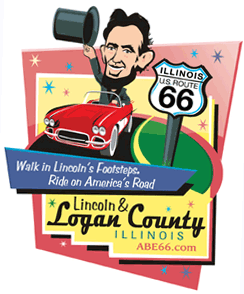|
IDOT, law
enforcement agencies announce drunk-driving crackdown through 4th of
July holiday
Enforcement checks are designed to curb
impaired driving, enhance seat belt usage
 Send a link to a friend
Send a link to a friend
[June 28, 2012]
CHICAGO --
The Illinois Department of Transportation, Illinois State Police and
hundreds of local law enforcement agencies around the state are
reminding motorists to "Drive Sober or Get Pulled Over" and "Click
It or Ticket" this weekend and through Independence Day.
|
 The state police and other
law enforcement across Illinois are participating in the annual
Independence Day intensive crackdown on drunk driving and seat belt
law violators. This stepped-up enforcement effort coincides with a
media campaign around the holiday intended to make Illinois roadways
safer, get impaired drivers off the road and increase seat belt
usage, especially during the historically dangerous late-night time
period. The state police and other
law enforcement across Illinois are participating in the annual
Independence Day intensive crackdown on drunk driving and seat belt
law violators. This stepped-up enforcement effort coincides with a
media campaign around the holiday intended to make Illinois roadways
safer, get impaired drivers off the road and increase seat belt
usage, especially during the historically dangerous late-night time
period.
"IDOT and our law enforcement partners remain fully committed to
stop impaired driving, as we urge motorists to obey all safety laws
and buckle their seat belts every time they get in a vehicle, front
or back seat," said Illinois Transportation Secretary Ann L.
Schneider. "Our partnership with law enforcement in the 'Drive Sober
or Get Pulled Over' and 'Click It or Ticket' mobilization
effectively boosts awareness, and helps ticket or immediately remove
law violators from Illinois roadways. We encourage all travelers
this holiday season to continue to make the right choice by buckling
up, designating a sober driver and never driving while distracted."

During the entire Independence Day crackdown, the Illinois State
Police and more than 250 local law enforcement agencies across the
state will conduct nearly 175
roadside safety checks and more than 500 saturation patrols
looking to remove drunk drivers from Illinois roadways. In addition,
more than 500 seat belt enforcement
zones will be conducted, with more than half implemented at night,
when belt usage is typically the lowest. Illinois law requires
passengers to buckle up in the front and back seat.
"Law enforcement throughout the state will saturate the roadways,
identifying impaired drivers and other violators, in an effort to
boost safety around the holiday," said Illinois State Police
Director Hiram Grau. "Traffic enforcement goes hand in hand with
preventing violence, and officers will be enforcing both to ensure
Illinois motorists and citizens are safe."
The mobilization, funded by National Highway Traffic Safety
Administration and administered by the Illinois Department of
Transportation, comes as Illinois' motor vehicle crash fatalities
are up as compared with the same time period in 2011. Provisional
IDOT crash data shows 449 people have died in motor vehicle crashes
through June 25 of this year, as compared with 381 killed by crashes
during the same time frame in 2011.
In addition, last year in Illinois, 13 people were killed in
motor vehicle traffic crashes during the Independence Day holiday
weekend (6 p.m. July 1 to 11:59 a.m. July 4). Of those fatalities,
nine, or 69 percent, occurred in crashes that involved at least one
driver or motorcycle operator who had been drinking.
[to top of second column] |

To outline the consequences of impaired driving, IDOT officials and
law enforcement have demonstrated through events at several jails in
Illinois what happens when an individual is arrested for driving
under the influence.
Here's what happens when a DUI arrest is made:
-
Once probable
cause is established through field sobriety tests administered
by a police officer, a driver is placed under arrest for DUI,
handcuffed and taken to police headquarters.
-
Once there, the
driver is asked to participate in a chemical test of breath,
blood or urine. If the test shows a blood alcohol content of
0.08 or higher, or any trace of another illegal substance or
intoxicating compound, the driver is issued a sworn report
notifying them that their driver's license will be suspended for
a period of six months.
-
If a driver
refuses the chemical test, they will have their driver's license
suspended for a 12-month period.
-
Following the test
or refusal, the individual is then required to post bond and is
often detained in jail until bond is posted. Their vehicle may
be towed, impounded or seized.
See information
below on minimum DUI penalties in Illinois and
DUI arrests in the state.
[Text from
Illinois
Department of Transportation
file received from the
Illinois Office of
Communication and Information]

 |
|
|
Minimum DUI Penalties |
|
Loss of driving
privileges |
Minimum 6
months |
Minimum 1 year |
Minimum 1 year |
|
Eligible for
Monitoring Device Driving Permit allowing driving relief
with Breath Alcohol Ignition Interlock Device (BAIID) |
Yes |
No |
No |
|
Eligible for
Restricted Driving Permit |
No |
Yes, after 1
year and only with a BAIID |
Yes, after 1
year and only with a BAIID |
|
Jail |
Up to 364 days |
Up to 364
days; mandatory 5 days (or 30 days community service) |
Class 2 Felony
with possible 3-7 years; mandatory 90 days imprisonment
depending on facts |
|
Community Service |
Up to 25 days
depending on facts |
30 days (or 5
days in jail) |
Mandatory 25
days depending on facts |
|
Fines |
Up to $2,500 |
Up to $2,500 |
Up to $25,000 |
|
DUI Arrests in Illinois |
|
2008 |
2009 |
2010 |
|
48,113 |
45,946 |
41,900 |
Resource: Illinois
Secretary of State, Illinois DUI Fact Book 2012
[Tables copied from
Illinois
Department of Transportation
file received from the
Illinois Office of
Communication and Information] |